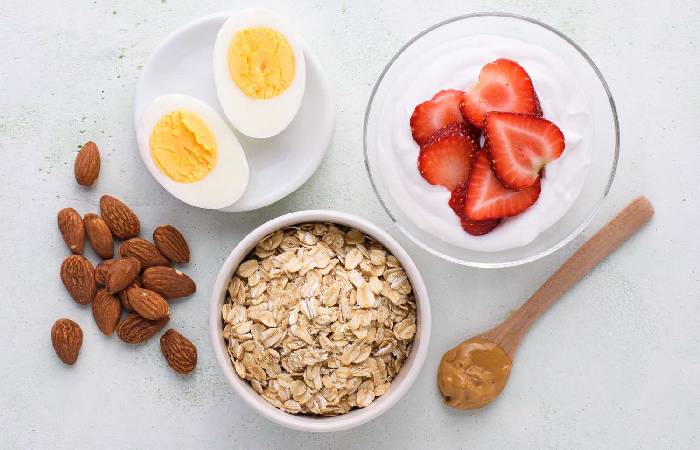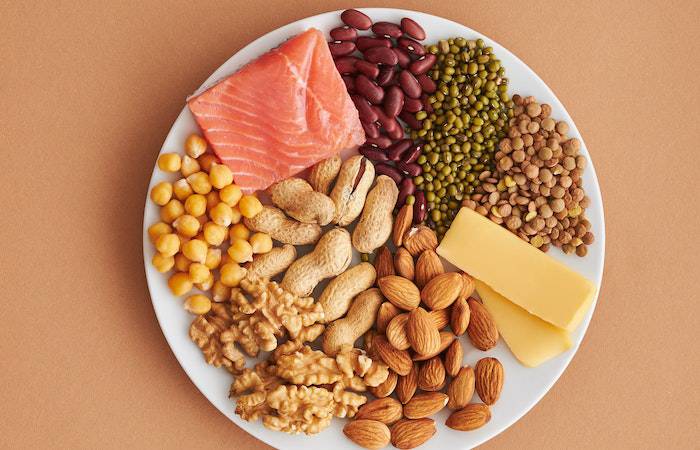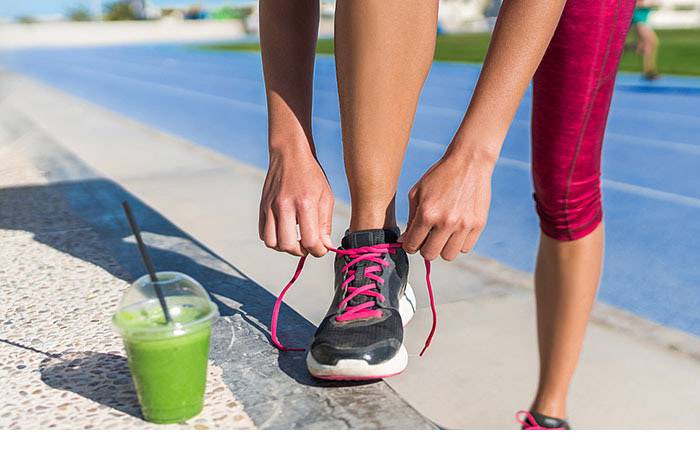Nutrition No on The Run – The nutrition that we advise from the food. That we have to consume for overall health to build hair, muscle, skin, immunity, etc., and our body is continuously repairing healing. Our body works daily, producing new cells, improving recovery, and supplying vital organs with nutrients.
The food we have to consume from food that should support our body is fuel for running goals. But on the other hand, eating the right food in quantity will boost our body’s immunity. And it might fight with a body to wound better. So a balanced diet for nutrition should include in our daily essentials.
Table of Contents
What To Eat During Running?
While running, there are several factors to consider. For example, we have to make sure whatever food we consume might want to access restrooms; occasionally, even the water is a factor.
If we don’t take precautions while eating while running or prefer to eat actual meals, stick to liquid and gels; if choking worries you, these fuels are very easy to swallow and unlikely to cause choking.
Avoid swallowing and chewing while running. Drinks and gels are convenient for eating on the go. But it’s best to eat meals that need more chewing.
What To Eat Before Running
It would help if you ate your meal three to four hours before running. It is the best way to get the correct quantity of food while giving your body enough time to process it. Multifaceted carbs oats, rice, whole grains, potatoes, paired with a small amount of protein and fat two eggs, gels and, sports beans, dry fruits etc. to keep your energy levels stable for hours to come,
Timing your food can be delicate, but some general guidelines can help dial in your pre-run nutrition.
- We should eat a curd portion of Fruit, such as an orange or banana.
- Half of a sports energy bar.
- English muffin with honey or jelly.
- Half a cup of dry cornflakes.
Some great fruit bases include strawberries, blueberries, mangoes, bananas, pineapple, cherries and peaches, and Veggies. If you don’t mind the green colour, adding a handful of spinach or kale is an excellent way to bring more antioxidants to your drink.
Best Foods For Runners
A good diet can boost physical health and help you meet the fitness of runners’ goals. Make sure your meals of points the following essential workings:

- Fruits and vegetables for vitamins, minerals, and antioxidants
- Lean proteins such as fish, poultry, beans and egg.
- Good fats, such as those found in almonds, avocados, and olive oil
- Healthy carbohydrates such as rice, whole grain slices of bread/portions of pasta, and oatmeal
And Also Some Perfect Runner’s Diet
Bananas
If you need a high-protein energy booster before your afternoon run, you can’t get a harmful effect with a banana. This Fruit also contains a healthy dose of potassium (about 400 mg). Especially important for long-distance runs or in hot temperatures when you are likely to sweat a lot and thus lose valuable minerals.
oatmeal
Breakfast with oatmeal is ideal if you plan on going for a run later. It is rich in fibre and offers a lot of carbohydrates (approximately 25 g per serving).
broccoli
This leafy green vegetable is one of the most excellent diets for runners since it includes vitamin C. Who knows why? According to studies, vitamin C can help lower the chance of or even stop painful muscles after strenuous exercise. Our bones are strengthened by broccoli’s abundance of calcium, folic acid, and vitamin K.
Nuts On The Run
Some nuts have a bad reputation for their high fat and calorie count, reminding weight-conscious runners to avoid adding them to their shopping lists. Researchers take a look at walnuts, almonds, and other nuts. While we should avoid certain pre-packed salted nuts, the vast majority of nuts are highly nutritious and provide essential nutrients for the body. It turns out it’s good for our hearts and our running.
Most nuts are a great protein source and provide a wide range of essential nutrients, vitamins, minerals, and antioxidants that help your recovery after those challenging runs.
Some Healthy Nuts Every Runner Should Eat

Almonds
If you’re looking for a great post-run recovery snack, look no further than almonds. Almonds contain calcium, magnesium, and potassium, which help keep your bones strong and are also a great source of protein.
You are eating some protein (as well as carbs) after a run is essential to help with post-run muscle recovery. One handful of almonds (32g) contains 13% of your daily-recommended allowance of protein.
Pistachios
Pistachios contain more potassium and vitamin K than other nuts. Potassium is a vital mineral for runners because it plays a role in keeping the body’s muscle tissue in condition. Any deficiencies in potassium can lead to fatigue, muscle weakness, and cramping. One hundred grams of pistachios contains 29% of your daily-recommended allowance of the vital mineral.
Walnuts
Omega-3 fats help to reduce inflammation by producing natural anti-inflammatory compounds that help your body heal and recover faster and reduce post-exercise muscle soreness. Unfortunately, the body cannot manufacture omega-3s, so we must obtain them from our diet.
Walnuts contain alpha-linolenic acid and omega-3 fat, and just one handful (32g) has around 91% of your daily-recommended allowance of the essential heart-healthy fat.
Cashew Nuts
Cashew nuts are not only low in fat, but they contain high magnesium levels. One hundred grams of cashew contains 82.5mg of magnesium, around 21% of the daily-recommended allowance. The mineral protects against blood pressure, muscle spasms, soreness, and fatigue.
Magnesium also plays a role in turning the food we eat into energy, which should help you run longer.
Best Post-Run Snack
Before or after spending hours thrashing the pavement or trails, it’s essential to nourish your body. So in the morning, during lunchtime or evening – to calm the stomach, prevent hunger and boost energy, a runner always needs to plan a balance between run time with a meal.
Post-run snacks filled with protein and carbohydrates reload muscles with fuel and your body with fluid and electrolytes. Before having any snacks, see the label to calculate the snack portions. Here are some post-run snacks that reduce your appetite after a hard run and refresh you until the next meal.
Some post-run snacks include:
- Nut butter, soybeans, cereal or pretzels
- Fresh fruit smoothies
- Chocolate milk
- Fresh yoghurt with Fruit, honey or granola
- Tuna, salmon or chicken
- Salty foods like salted nuts
- Recovery bars with a 3:1 balance of carbs and protein
- Protein shakes for easy consumption post-run
- A peanut butter and jelly sandwich or wrap
- Pita bread with hummus
Running Diet
More than simple nutrition, food is fuel for a runner, and diet is equally important as a workout. However, the capability of a runner depends on a diet and how the body has fueled for a workout. To measure the nutrition resources available to recover after a run is over. These will impact performance, strength, injury risk, energy, and health status.

A runner’s diet should consist balance of macronutrients and micronutrients. There are three macronutrients: protein, fat, carbohydrates, and micronutrients such as vitamins, minerals, and water. Make sure your meals give importance to the following essential components:
- Fruit and vegetables are best for vitamins, minerals and antioxidants.
- Add Lean protein to your diet, such as fish, poultry, beans, lentils and tofu
- Healthy carbohydrates such as rice, whole grain bread/pasta and oatmeal
- For Healthy fats such as olive oil, avocado and nuts
- For more vitamin D, Vitamin D-fortified dairy and almond, soy or rice-based beverages, Eggs, Cereal fortified with vitamin D, Tuna, Salmon
- For more calcium, try: Yogurt and cheese, Tofu, Edamame, Almonds
- Iron-rich foods include Poultry and other meat, Legumes, leafy green vegetables such as kale, Dried fruits and raisins, Iron-fortified bread and cereals.

